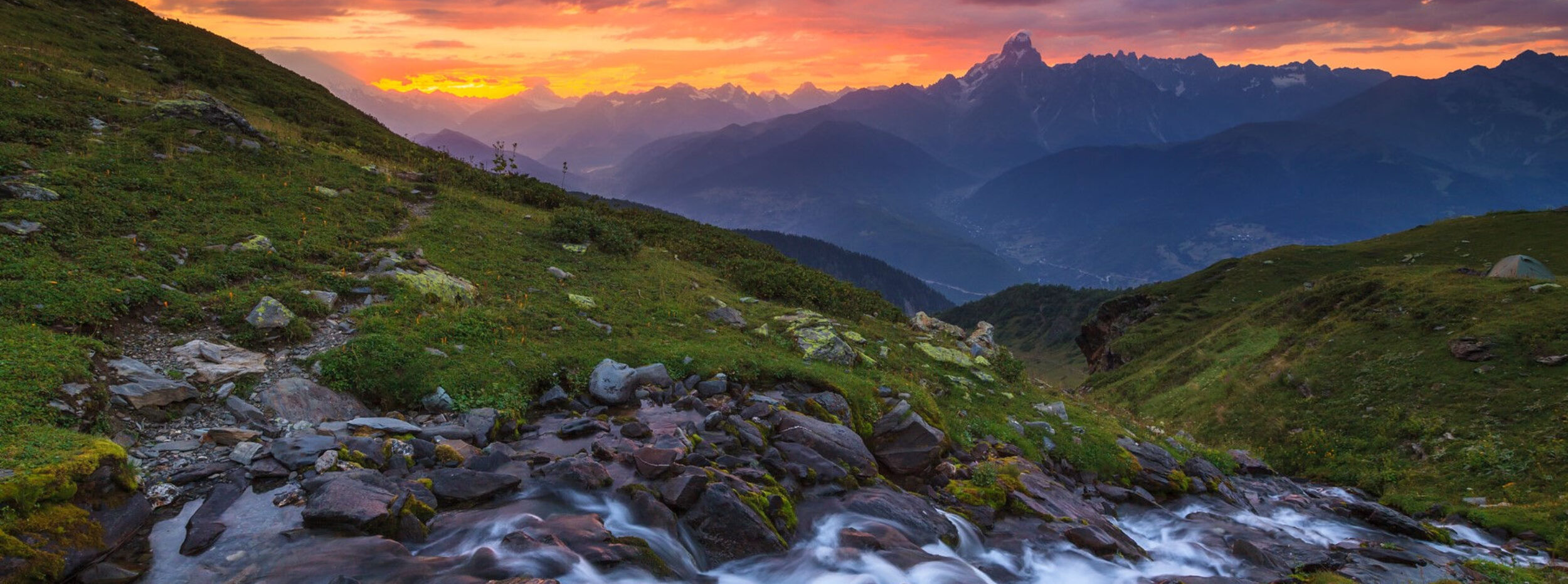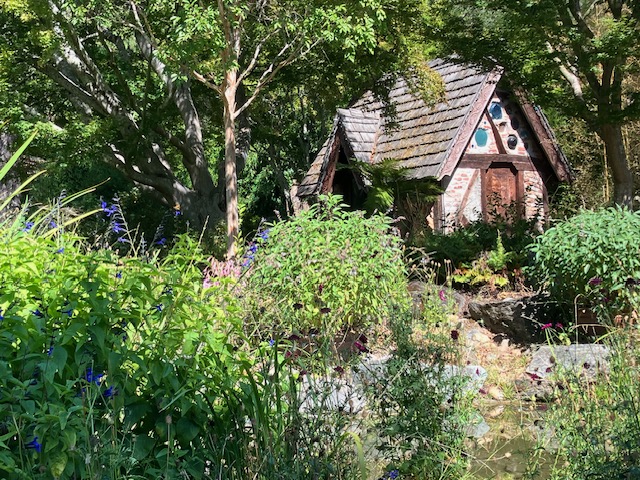The elders of sustainable indigenous communities must have known how much their people could take while ensuring enough for everything else. Enough to feed the animals. Enough for the plants to reproduce. Enough to decay and build the soil. Enough to perpetuate the entire system that sustained them.
Life is driven to express and expand itself, and will do so indefinitely if no limits are imposed. Lucky for us, limits are built into the fabric of the cosmos. While our imagination and will to create are endless, energy is finite. And no two things can occupy the same space.
Human culture at its best exists to honor those limits so we don’t have to suffer the way other creatures often do. We don’t have to experience those limits as starvation or being eaten, as being suffocated or exposed, as mating or being murdered. But we do have to surrender some or part of our desires to some higher authority, be that our parents, our guru, our laws, our therapist, our intuition, or simply our honest, sober experience of cause and effect.
Whenever someone preaches “You can do anything,” I want to ask “At the expense of what?” Because there is always a sacrifice. Time spent marketing a business is time not spent sleeping or connecting with friends. Getting a job or a scholarship means denying someone else the opportunity. Having a platform and being heard means that for that moment everyone listening to you doesn’t hear someone else. If I’m at the front of the line, you aren’t. If I fell this tree to build my home, other creatures lose theirs.
How would we live differently if we knew that every single thing we did required something else to step aside and make space for us? Might we consider our choices more carefully? Might we experience more gratitude? Might we be more likely to share?
What those indigenous elders must have understood is that there are two choices: voluntarily participate in this exchange with humility and generosity; or have what you defend and horde inevitably ripped away against your will. The first leads to a worldview that is peaceful and cooperative. The second leads to competition and violence. The first embraces the life-giving truth of pain and loss. The second denies death and compromises life through irreconcilable longing, frustration, fear and resentment.
This is the inheritance of Western Civilization. Whenever I think I can have more than my share without consequences, I live out my ancestors’ karma. I eat the whole bag of chips and I get a stomach ache. I watch two extra episodes of Love is Blind and have a crap night of sleep. I push my opinion on a coworker without validating theirs and I get months of prickly resistance. My ancestors taught me I could and should get what I want without paying the price. But now we’re seeing the impacts on our air, our fuel, our food, and our water. I may be pissed about the price of gas and organic broccoli, but that’s how it works.
Our Western elders aren’t telling us how much we can take without compromising the quality of life for ourselves and everything else. Even if they were, would it be enough? Would we even listen? So instead, they are telling us all the creative ways technology can continue enabling us to steal the energy we need. Its digging us ever deeper into our narrow-minded hole when what we need to be doing is listening.
If I’m really sincere about making life more livable for myself and those around me, I’m given dozens of chances every day to make the sustainable choice. If I really tune in, I know what choice to make. I might not like what I hear. I might be on too much of a compulsive binge or self-righteous rant to follow-through. But I can’t deny that the voice is there. Or that it will always arise if I stop long enough to really listen.
I really want to watch shows, but I do yoga instead and suddenly feel both how tired I am and a willingness to rest. I set aside the bag of chips for after my salad and then realize I don’t really want them after all. I spend half a day telling someone off in my head, getting more and more anxious about confronting them, when it occurs to me that what I think might not actually be true and maybe I should just ask them. I decide not to ask the neighbors to quiet down because maybe they’d like this one night to just live their lives. I follow an impulse to call a friend and ask about their day instead of ranting about mine, and then forget what I was so upset about. I sit quietly before bed even when I feel too tired because I know it helps me sleep better. And I sit quietly in the morning even when I feel rushed because I see how it makes me less reactive at work.
Following this inner guidance doesn’t always work. Our ancestors still starved and got eaten sometimes. This isn’t about perfection or even about survival, and it certainly isn’t about trying to control outcomes to fit our preferences. It’s about contributing to the quality of life while we are living. It’s about the security and satisfaction of living within the tide of life instead of trashing against it. That sometimes requires sacrificing some craving or self-indulgent idea in order to preserve our sanity, our health, our relationships, or our connection with big picture truth. Many humans have given their lives for what they believed was more important than them. And we admire them the way we do because we intuitively understand they have willingly surrendered to a cosmic law that enables us all to live.
When I’m at my best, I choose to surrender what I cling to most desperately so I don’t have to rail against life when it’s inevitably torn away. There is no way to cheat life. I know that I will be big and bright when it’s my turn to be, so I do not have to cut to the front of the line and steal your glory. I know that while we each have our unique and vital role to play, the story really has nothing to do with us as individuals. We get to experience and marvel at the cosmos unfolding around us, living out a drama that we can only dream at comprehending.
I believe the indigenous ancestors understood that. They prayed to greater beings because they knew not all the things in this world are ours to know, let alone control. They lived their part alongside every other creature. All I really want is to live mine with as much respect as I can muster for whatever confines are placed around me. Unlike my ancestors, I’m slowly learning to trust Life’s wisdom more than my own. And I like to think that’s bringing us all – including those dearly departed – a little more peace.
Nancy


This piece is stunning and speaks the words and observations that feel disconnected in a succinct sequence. Thank you for sharing a voice many are feeling and need to see the coherency. I will be reading this many times to sit and ponder and take in. Thank you and I hope you are well and wonderful.
Thanks so much, Francesca! This piece came when I sat and asked what my innermost self wanted to say, so its profound to know that it spoke to you as well. Please do reach out and share more as things unfold for you. This is an inner journey we’re all taking together.
Nancy, this article is a winner. It speaks to me on some of what is lacking in my life and what I can do about it. There’s a lot to think about here, and I will. And I will confront the big question: How do I change? And then, hopefully, I’ll do it.
I’m delighted this sparked some big questions for you – thank you so much for sharing them! I’d love to hear how things unfold for you!
Nancy,
First, I echo the positive feedback by Francesca and Edward – this piece is quite thoughtfully written and thought provoking. I am going to reread it and process further how it can and does apply to my daily life.
I studied economics in college. On a most simplistic level, your question “At the expense of what?” is what economists call Opportunity Cost – an investment in one thing comes at the cost of not investing in something else.
I see you have identified a much broader ethical paradigm for how you, and all of us, fit within the entire ecosystem of the world and how even the tiniest choices have impacts on others. Your perspective is original and worthwhile. So, thank you!
At what cost do we as humans NOT give serious study to practical ways we can implement the more sincere and respectful way of life you describe?
I hope you keep writing and expanding on your concepts, and I look forward to reading more.
Welcome to our little community, Rob – and thank you so much for taking the time to digest what I’ve shared and connect it to your own experiences. I love hearing how a theme in one area echoes elsewhere (ie ecology and economics). You also remind me how sometimes the right questions are more important than answers: “How can I implement sincere, respectful, practical ways to honor the inherent reciprocity in life?” I’d love to walk through a week or a day, or even an hour, with that question and see what unfolds. I look forward to continuing the conversation with you!